No word is currently used as often in leading magazines as “digital transformation”. So the question arises: what is digital transformation and how can it be defined? In the following, this article is intended to summarize some points of this trend and, in addition to a formal definition, also show the reasons, potentials and actors of the “buzzword”.
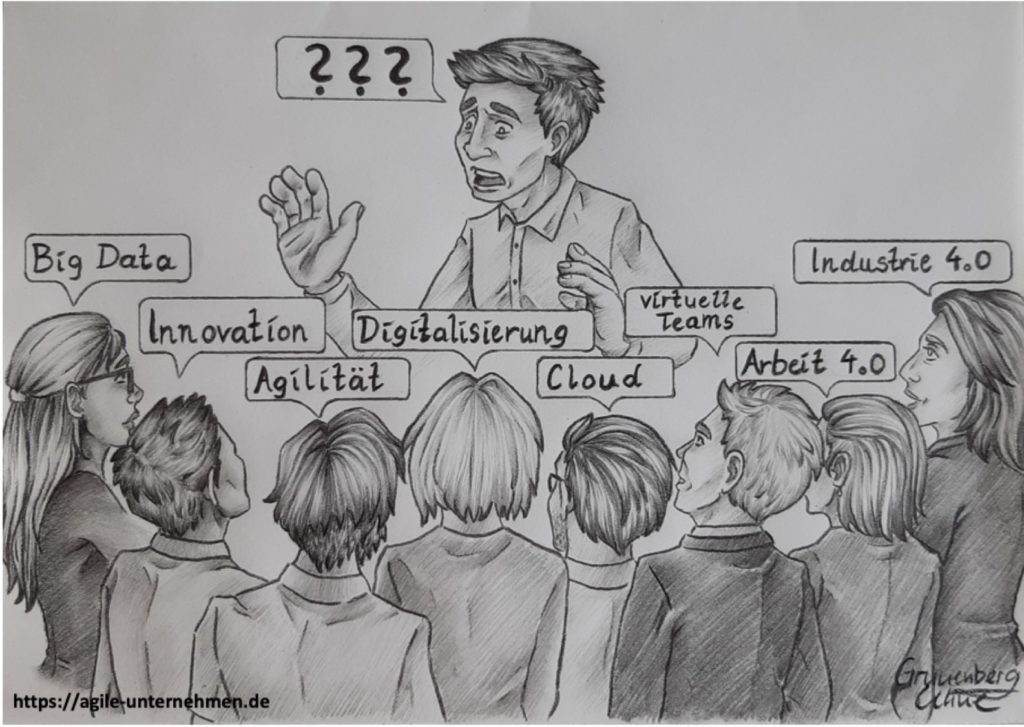
Digital transformation definition
Digitalization is generally understood to mean a digital conversion and representation or implementation of information and communication or the digital modification of instruments (Gabler Lexicon). “ The digital transformation is understood as the exponential and permanent change of society and companies based on technology “(Lindner and Leyh 2018). Petry (2016) sees the rapid technological development as the basis of digitization, which has become faster and faster in recent years and therefore speaks of the age of acceleration. Hoffmeister’s book also states that the basis of digitization is also a kind of domino effect: Existing technologies pave the way for further technologies.
The digital transformation describes change processes, due to digital technologies at high speed. Many sources cite changes in customer requirements as the driving force behind this digitization, which can only be served with digital technologies. A good example of this is the Spotify streaming service, which makes music accessible anytime, anywhere, anytime and inexpensively (to a certain extent even for free).
Overall, the academy differentiates between enablers and actors. “Enablers” are more or less “enablers” and include the following:
- to the first digital technologies (cloud computing, …),
- digital infrastructures (protocols, …) and
- Last but not least, digital applications (online banking, …).
On the basis of these “enablers”, new exploitation potentials arise in new areas. Companies are starting to explore these and try them out in initial pilot projects. Examples are: digital business models and digital value networks. Digital business models describe the change from analog to digital models. A good example here is the Deutsche Bahn online ticket. Digital value creation networks are, for example, virtual teams.
The digital transformation affects many People: Entrepreneurs, researchers and employees as well as numerous other citizens of the Federal Republic and beyond its borders. They can now communicate with each other in real time or share events from their lives with others in the live stream. Just yesterday I networked with my toothbrush. However, these new possibilities also have their downsides: A lack of data protection and information overload are just two of the negative consequences.
Are a different actor Companies . Here work is changing into so-called digital work – business models are also changing fundamentally. Are also affected Science and teaching in the form of new possibilities for archiving, publication and preparation of research as well as e-learning. Also offers the digitalization Numerous challenges for governments: The main task here will be to steer this transformation through laws and guidelines as well as the own transformation of official processes.
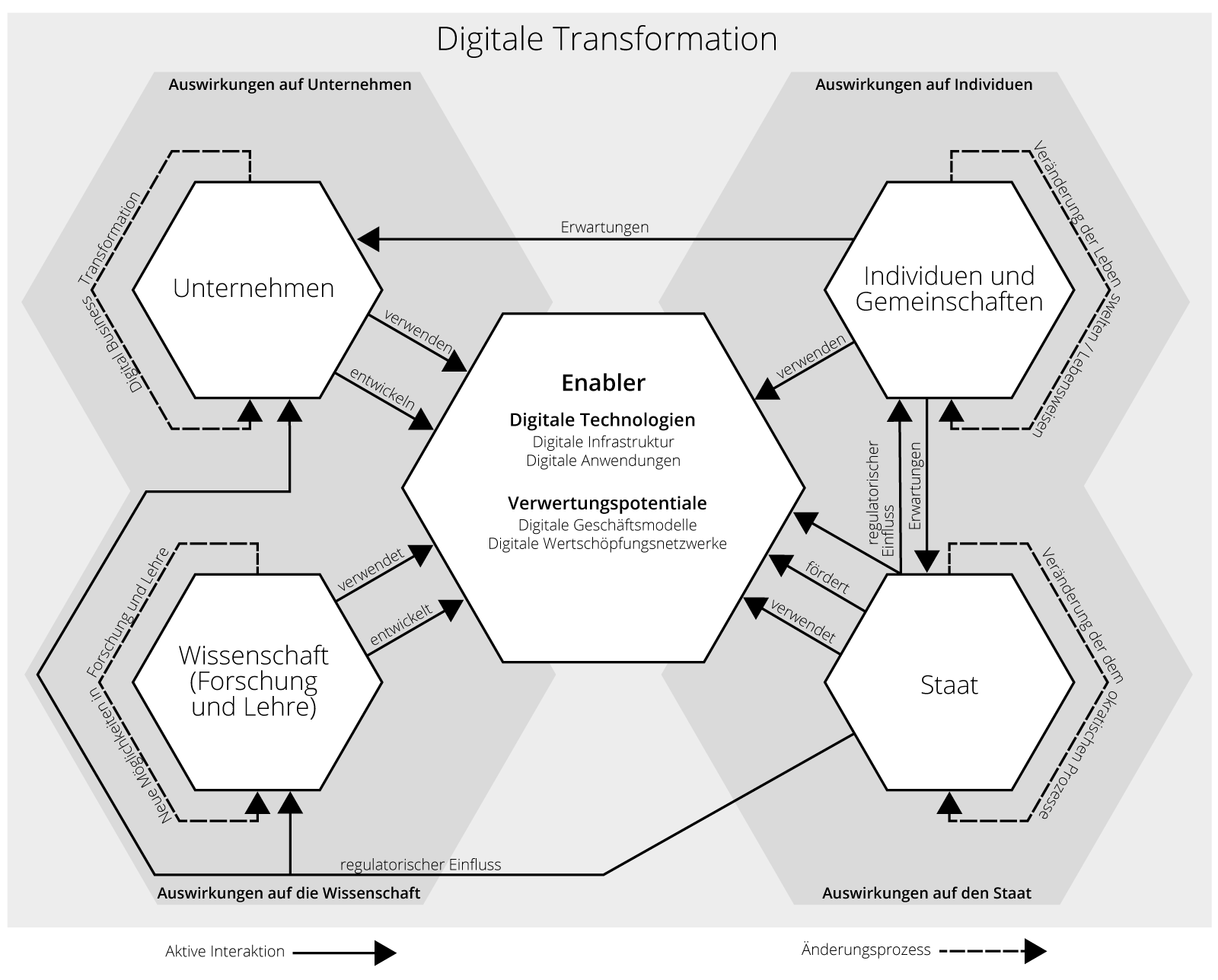
Driver of the digital transformation
But why are we talking about digital transformation now of all times – why is the speed fast enough right now? To answer this question (s) has Petry (2016) the following diagram as well as drivers for the digital transformation provided. At the beginning there is the exponential growth of companies with the core topics of networking, AI and Big data . The main consequences are changes in work itself, in customer behavior and in the general competitive situation.
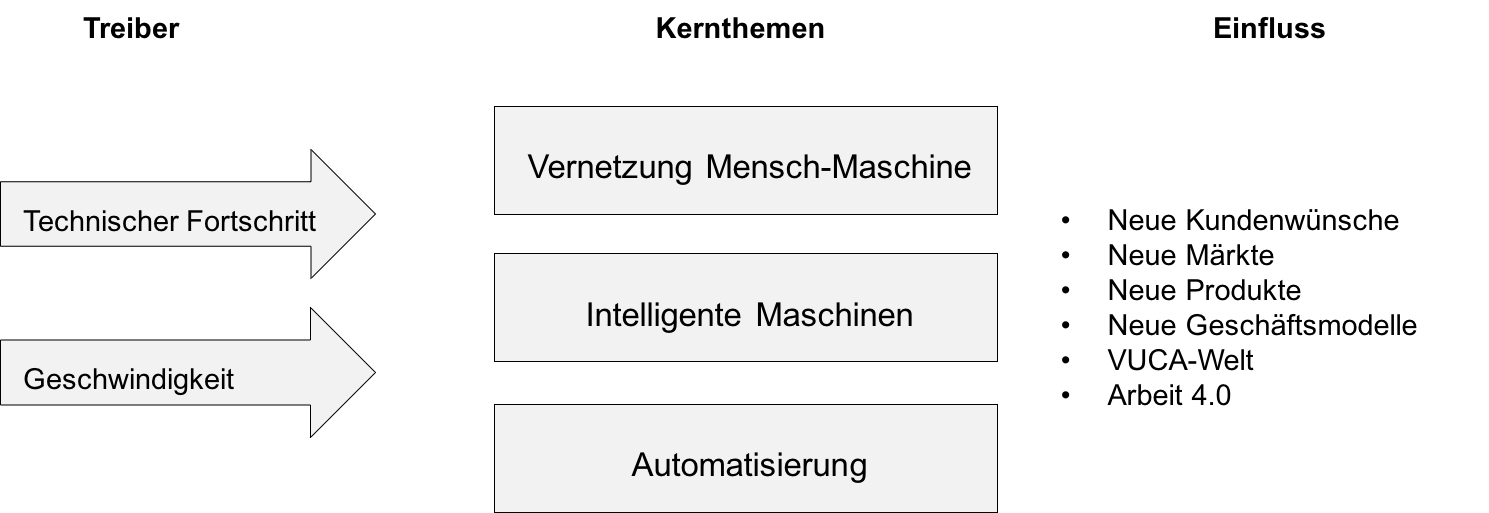
But we’ve been digitizing for 50 years!
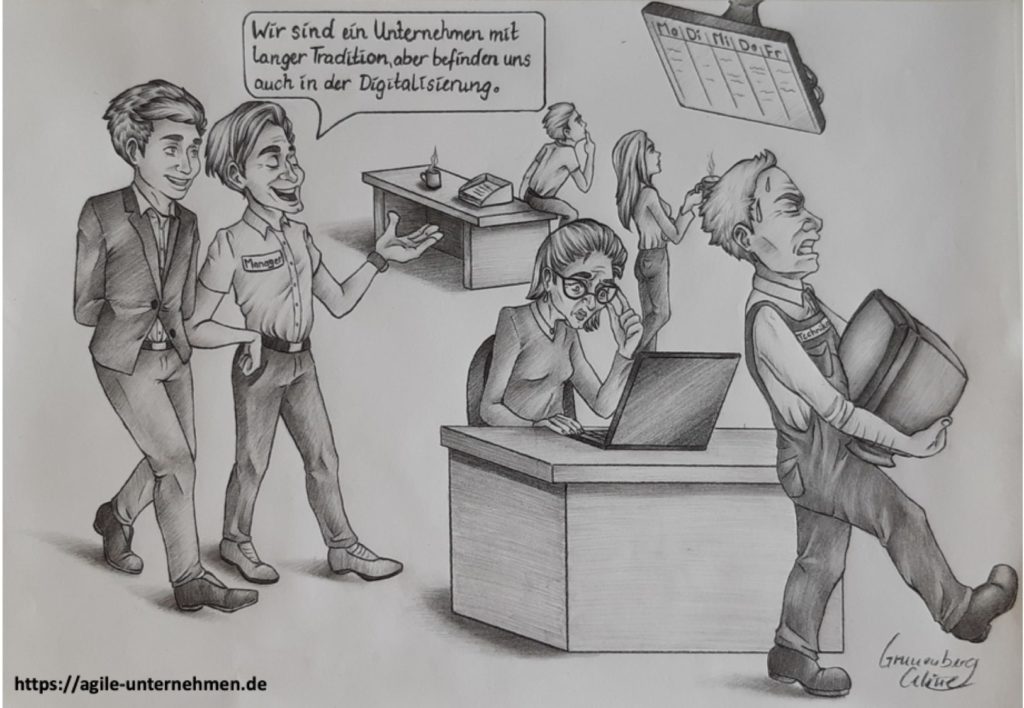
Currently, the greatest criticism of the thesis on digital transformation is that we have been digitizing ourselves for many years. That is correct and it hits the nail on the head. However, if you look at current literature or directly at the company, you will notice a major difference: While many years ago we were largely digitalising on the surface, companies are now moving towards more profound digitalisation. A good example is going to the hairdresser: Here I book my appointment using an app. This approach is definitely digital. However, the actual cutting process is still carried out in the same way. Classic people business is therefore not scalable, as one employee is required for each customer. Similar to consulting, in which many tools support the advisor, but the actual advice still takes place in analog form and the advisor has not yet been digitized. You can find more about this in the article about Consulting 4.0 . This shows two examples of classic people business. Of course, there are still no direct answers to these questions, but there is currently a clear trend towards deeper digitization with fundamental changes in behavior. Digital transformation is therefore a profound social change in people’s behavior through digital technologies. One example that already exists is remote work instead of traditional attendance.
Evolutionary stages of the digital transformation
In the blog of Social Collaboration Academy I also found a nice “statement” on the criticism that we have been in a digital transformation for ages: According to the article, there are 4 levels of digitization – but we have only been talking about a digital transformation since we tried it To network the real world and the digital world.
- The first evolutionary stage lasted from approx. 1990 – 2000 and dealt with the networking of computers.
- In the second evolutionary stage from approx. 2000 – approx. 2015 it was primarily about general acceptance and general everyday introduction and use of mobile devices.
- The one in front of us now third evolutionary stage The duration of which experts estimate will be around 2015-2030, focuses on topics such as the general maturity of systems and the Internet of Things.
- With the fourth evolutionary stage , which should start from around 2030, there could be a complete merging of the real and digitally networked world.
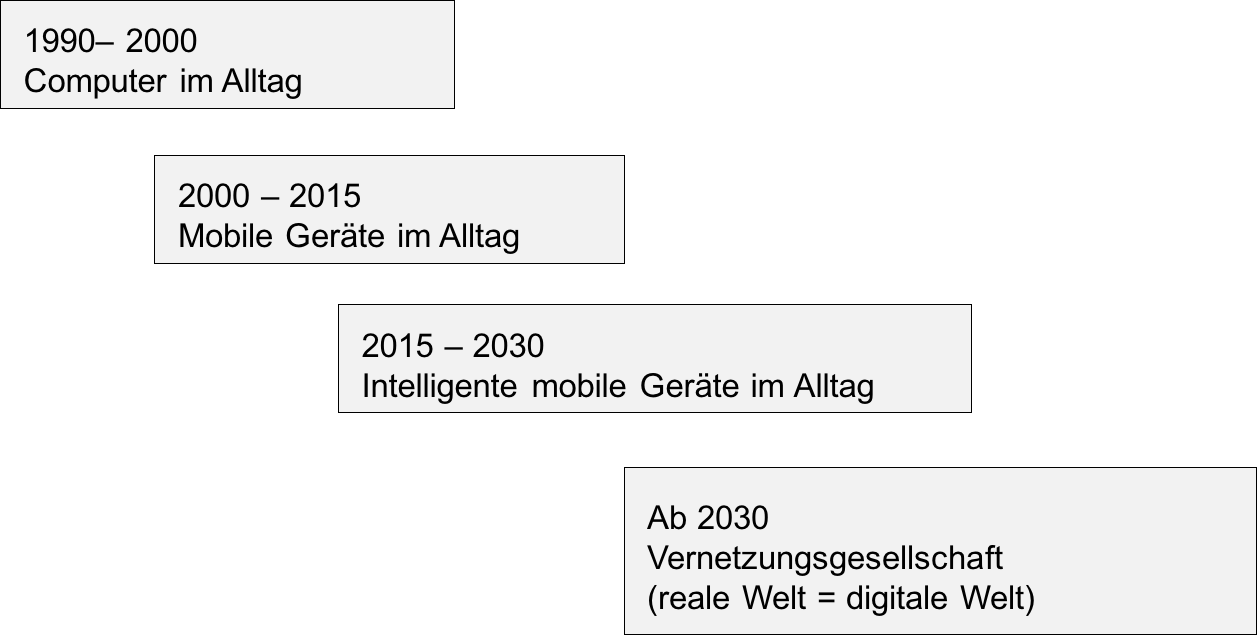
Transformation, change, evolution or revolution?
There are many terms for digital transformation and just as many opinions everywhere. Is it a digital transformation or not? A transformation has a beginning and an end. A change stands for a state that changes into another state. Evolution stands for the peaceful further development of something and revolution for a fundamental, often violent, innovation of a respective status quo. Also read my on this Article on the digital r (evolution) . Many also simply refer to the digital transformation as “digitization”. However, this would simply mean: something analog becomes digital. What do you think: which “label” should we give to digital change?
[yop_poll id=”17″]Digitization in German companies
Digitization is not a new topic in the German corporate landscape. Processes have been digitally supported or even fully automated for a long time. The main difference in the current discussion is the increased speed and complexity of the change processes, which can meanwhile result in profound process changes and even job losses (Lindner 2019).
I have already identified some examples in my PhD in Lindner (2019): Siemens to automate over 7000 jobs in administration by 2020 (Heise 2018). Deutsche Telekom is also testing the use of chatbots in customer service, which could change numerous jobs (Handelsblatt 2018) and DHL has been experimenting with the delivery of parcels with drones since 2014 (DHL Paketkopter T3N 2018). Another example is the efforts to create self-driving cars at Audi, VW and Daimler, which could fundamentally change all mobility in Germany (Manager Magazin 2018).
These few examples show that, according to the practical literature, digitization could bring about numerous far-reaching changes.
What is digital transformation?
Many companies have been driving the digitization of society for a long time. We are now talking about digital transformation because of the speed and profound digital changes. While digital technologies were previously often only used “on the surface”, there are now profound changes right through to the original business model. In summary, we are also talking about a digital change or a digital evolution or revolution. You can also read mine at this point Article on the digital (r) evolution – another recommendation is that Book by Petry .
[werbung] Verwendete Quellen anzeigenLindner, D. (2019). KMU im digitalen Wandel: Ergebnisse empirischer Studien. Wiesbaden: Springer Gabler.
Lindner, D., & Leyh, C. (2018). Organizations in Transformation: Agility as Consequence or Prerequisite of Digitization? In 21st International Conference on Business Information Systems (p. 15).
Thorsten Petry: Digital Leadership. Haufe, 2016.



